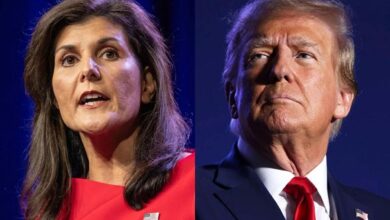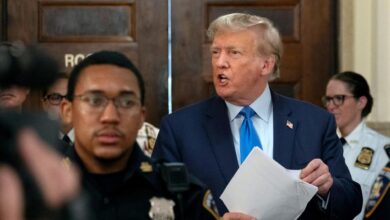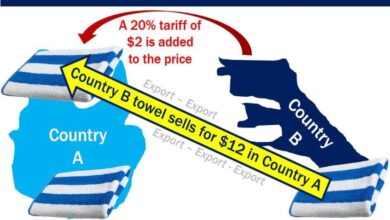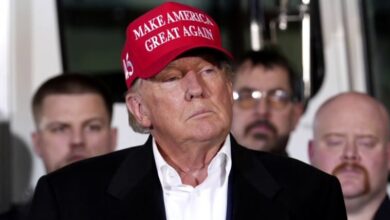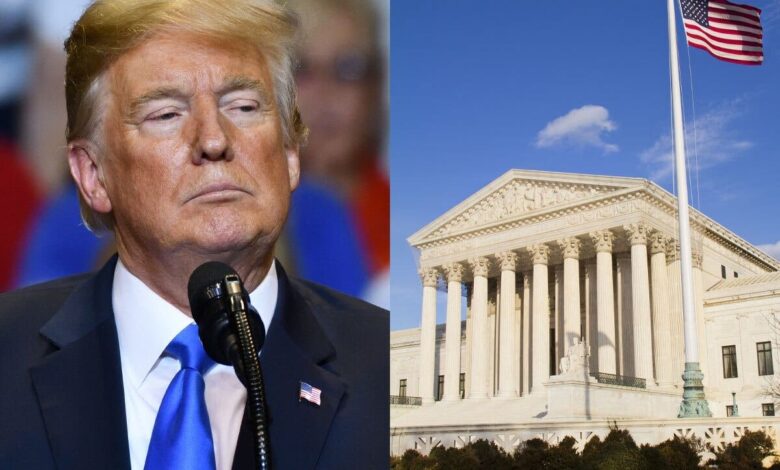
Trump Immunity Claim in Court A Deep Dive
Trump immunity claim in court is a significant legal battle, scrutinizing the extent of presidential protections against legal action. This case delves into precedents set by previous presidents, examining the specific arguments presented by Trump and the counterarguments raised against his claim. Understanding the potential outcomes and implications of this ruling is crucial, as it could shape future presidential immunity cases and influence the political landscape.
The case explores the historical context of presidential immunity claims in the US, analyzing the legal reasoning behind both sides. It investigates the factual basis for Trump’s immunity claim and compares it to previous claims made by presidents. The procedural steps, key players, and potential ramifications of the court’s decision are also meticulously examined.
Legal Precedent and Background
Presidential immunity claims in the United States have a complex and evolving history, deeply intertwined with the balance of power between the executive and judicial branches. These claims often raise profound constitutional questions about the scope of presidential authority and the limits of judicial review. Understanding the historical context and relevant Supreme Court precedents is crucial to evaluating the current arguments.The principle of executive privilege, although distinct from immunity, often intersects with claims of immunity.
Executive privilege protects confidential communications within the executive branch, but immunity claims protect the President from legal actions. The tension between these concepts has been a recurring theme in presidential legal battles.
Supreme Court Cases on Presidential Immunity
The Supreme Court has addressed the issue of presidential immunity in several landmark cases, shaping the legal landscape surrounding these claims. These cases illustrate the Court’s evolving understanding of the President’s powers and the limits of judicial oversight.
- United States v. Nixon (1974): This case, while not directly about immunity, established crucial boundaries regarding executive privilege. The Court ruled that the President’s claim to executive privilege was not absolute and could be overcome in certain circumstances, such as when a compelling need for evidence in a criminal trial exists. This ruling had significant implications for subsequent immunity claims, highlighting the limitations of presidential secrecy claims.
- Nixon v. Fitzgerald (1982): This case addressed the question of presidential immunity from civil lawsuits. The Supreme Court held that the President enjoyed absolute immunity from civil suits for actions taken while in office, but only in the context of their official duties. The Court distinguished between official and personal actions. The Court reasoned that allowing such lawsuits would disrupt the President’s ability to perform their duties.
- Clinton v. Jones (1997): This case, significantly different from Nixon v. Fitzgerald, addressed the issue of whether a sitting President could be sued for actions taken prior to their presidency. The Court held that a sitting President could be sued for conduct prior to taking office. This case underscored the distinction between immunity from civil suits related to official conduct while in office and suits regarding actions taken before assuming the presidency.
Historical Context of Presidential Immunity Claims
The history of presidential immunity claims reflects the ongoing debate about the separation of powers and the balance between executive authority and judicial review. The historical context reveals evolving interpretations of the Constitution.
- Early precedents: Early cases did not explicitly address presidential immunity, but the development of executive privilege concepts created a backdrop for later claims. The early American judiciary was still establishing itself, and presidential power was not as rigidly defined.
- 20th and 21st centuries: The increased scope of presidential power in the 20th and 21st centuries led to more frequent and complex immunity claims. The rise of national security concerns and complex international relations influenced the judiciary’s approach to presidential immunity.
Legal Arguments in Previous Immunity Cases
Various legal arguments have been presented in support of presidential immunity. These arguments often center on the separation of powers and the need to protect the executive branch from undue interference by the judiciary.
- Separation of powers: A core argument in favor of presidential immunity rests on the principle of separation of powers. Proponents contend that allowing lawsuits against the President could undermine the President’s ability to effectively carry out their duties.
- Protection of the executive branch: The argument also often emphasizes the need to protect the executive branch from undue judicial interference. This concern arises from the belief that allowing legal challenges against the President could create a chilling effect on the exercise of executive power.
- National interest: In some cases, the argument has centered on the national interest. The claim is that allowing lawsuits could harm national security or foreign relations. This aspect is particularly relevant in cases involving sensitive information or international negotiations.
Types of Presidential Immunity Claims
The following table summarizes different types of presidential immunity claims, their descriptions, relevant cases, and key arguments.
| Claim Type | Description | Relevant Case(s) | Key Arguments |
|---|---|---|---|
| Absolute Immunity for Official Acts | Protection from civil suits for actions taken within the scope of official duties. | Nixon v. Fitzgerald | Protecting the President’s ability to perform their duties without fear of litigation. |
| Limited Immunity for Pre-Presidency Actions | Protection from suits for actions taken before assuming office. | Clinton v. Jones | Distinction between actions taken before and during office; respect for the judiciary’s power to adjudicate. |
Trump’s Specific Claims
Trump’s immunity claims hinge on the assertion that his actions were taken in the performance of his official duties as President. This broad argument, with varying degrees of specificity, forms the core of his legal defense against potential criminal investigations and prosecutions. The specifics of these claims, the legal reasoning behind them, and the factual basis are complex and highly contested.
Analyzing these elements reveals the intricate legal theories underpinning his position and the potential ramifications for future presidential administrations.The legal battle surrounding these claims explores the boundaries of presidential power and the extent to which a former president can be shielded from legal accountability. Understanding the nuances of these claims is crucial for evaluating the potential impact on the rule of law and the precedents set in future similar cases.
Trump’s Immunity Arguments
Trump’s immunity arguments revolve around the idea that actions taken while in office, regardless of intent, are protected by executive privilege or an implied form of immunity. He contends that these actions were within the scope of his presidential duties, thus rendering them immune from prosecution. This broad claim needs to be examined in the context of existing legal precedent and the specifics of the alleged offenses.
Legal Reasoning Behind Trump’s Arguments
Trump’s legal team argues that the actions he took while in office were essential to the performance of his duties as President. They cite historical precedent, including past interpretations of executive privilege, to bolster this argument. They also claim that the sheer volume of activity during a presidency necessitates a broad interpretation of what constitutes “official duties.”
Factual Basis for the Immunity Claim
The factual basis for Trump’s immunity claim relies heavily on his assertions regarding the context and purpose of his actions. The specific details of these actions and their connection to his presidential duties are central to the legal argument. Supporting evidence, such as official records, communications, and witness testimonies, will be crucial in determining the validity of the claim.
Legal Theories Supporting Trump’s Position
- Executive Privilege: Trump’s legal team likely invokes executive privilege, claiming certain communications and decisions are confidential and necessary for the effective functioning of the executive branch. This argument suggests that disclosure would harm national security or other vital interests. However, the scope and limits of executive privilege are subject to legal interpretation and judicial review.
- Implied Immunity: A potential argument centers on an implied immunity for actions taken in the context of the President’s official duties. This theory is often rooted in the idea of the separation of powers and the need to protect the executive branch’s ability to function without undue legal interference. The Supreme Court has previously addressed the issue of immunity for presidents, but the precise application of such principles to the specific accusations against Trump remains uncertain.
The Trump immunity claim in court is certainly grabbing headlines, but it’s worth considering the broader implications of similar issues. For example, the recent controversy surrounding midwife vaccinations and false immunization records in Nassau County raises important questions about accountability and record-keeping. This issue, highlighted in the midwife vaccinations false immunization records nassau county case, could potentially have parallels with the legal arguments surrounding Trump’s immunity claim, especially when considering the potential for systemic failures in record-keeping.
Ultimately, the legal battles around these issues are just the tip of the iceberg, and more attention needs to be paid to them.
- Qualified Immunity: A possible argument could invoke qualified immunity, suggesting that, as President, Trump is shielded from liability for actions taken in good faith and within the bounds of his authority. However, the application of qualified immunity to a former president is not without controversy and may not apply to criminal charges.
Comparison to Previous Presidents’ Claims
Examining how previous presidents have approached similar situations is essential for context. It helps establish the precedents and the arguments typically used in such cases. While past instances may offer similarities in the underlying reasoning, the specifics of each case, including the nature of the alleged offenses and the legal context, will significantly differ. Notably, each case involves distinct legal and factual considerations, and direct comparisons may not always be applicable.
Arguments Against Immunity
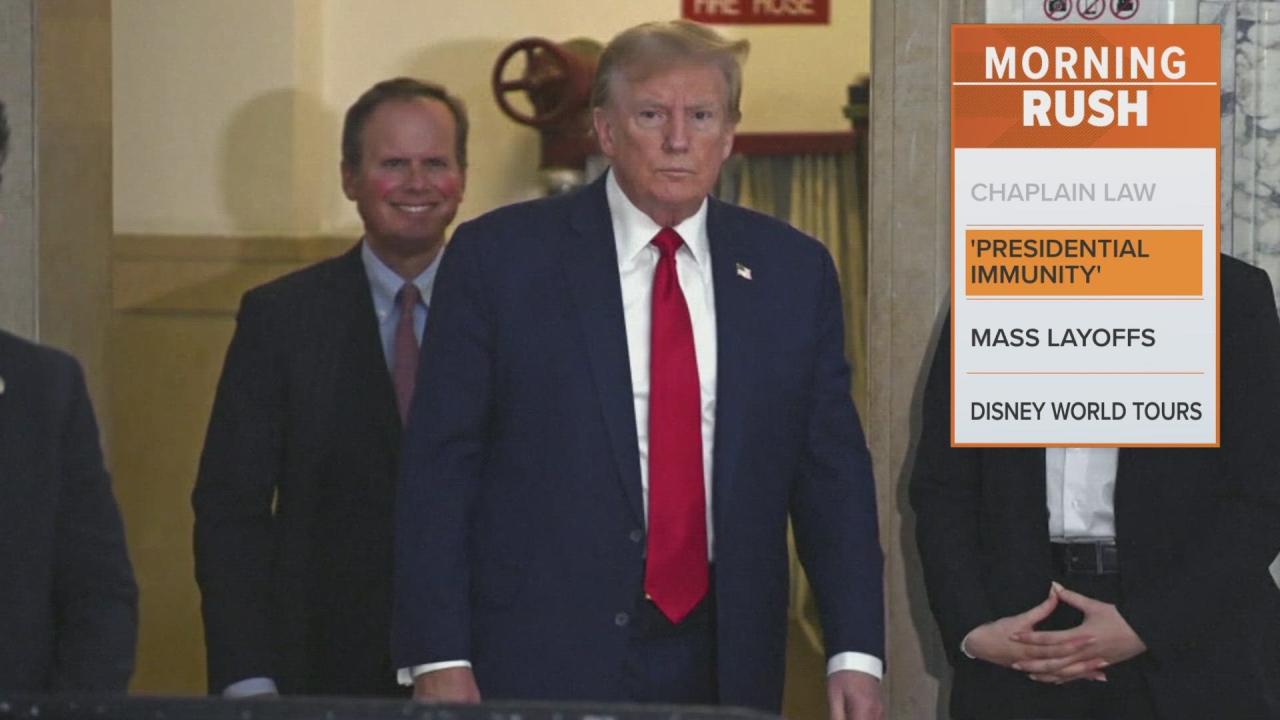
The claim of immunity by former President Trump faces substantial counterarguments, challenging the very basis of such a privilege. These challenges stem from the specific nature of the alleged offenses and the potential consequences of granting immunity in this context. The legal precedent surrounding executive privilege and immunity is crucial in understanding the potential pitfalls of Trump’s claim.The central contention against Trump’s immunity rests on the assertion that it does not extend to alleged criminal activity.
Trump’s immunity claim in court is raising some eyebrows, isn’t it? It’s a fascinating legal battle, but it’s also worth considering the ethics surrounding the purchase of stranger letters. Recent cases have highlighted the murky waters of stranger letters purchase ethics , and whether those involved are acting in good faith. Ultimately, the question of Trump’s immunity claim remains a complex one, deeply intertwined with these broader ethical considerations.
While executive privilege might shield certain communications, it does not inherently shield a former president from accountability for actions that constitute violations of criminal law. The legal landscape regarding immunity and former presidents is complex, with some jurisdictions supporting a broader scope of immunity than others.
Legal Basis for Opposing Immunity
The legal framework for opposing Trump’s immunity claim hinges on the interpretation of relevant statutes and case precedents. The principle of accountability for criminal acts is paramount, and immunity claims must be carefully scrutinized to ensure that they do not undermine this fundamental principle. Federal statutes and common law doctrines regarding criminal investigations and prosecutions offer important counterpoints to Trump’s arguments.
Potential Ramifications of Granting Immunity
Granting immunity to former President Trump in this case could have far-reaching consequences, potentially setting a dangerous precedent. It could signal a weakening of the rule of law and embolden future presidents to potentially disregard legal accountability for their actions. The precedent of immunity would likely be challenged in future similar situations. Cases involving former officials in similar circumstances could see their claims of immunity questioned, and legal precedents could be set to better define and limit the scope of such claims.
Table of Key Arguments Opposing Trump’s Immunity
| Argument | Supporting Evidence | Legal Basis |
|---|---|---|
| Immunity does not extend to alleged criminal activity. | Allegations of obstruction of justice, or other criminal offenses, fall outside the scope of immunity. | Principles of accountability for criminal acts; relevant statutes and case precedents. |
| The claim for immunity is not supported by established legal precedent in similar cases. | Cases involving former officials under similar circumstances did not result in immunity. | Lack of a consistent pattern in granting immunity to former presidents in similar legal contexts; previous court rulings. |
| Granting immunity could set a dangerous precedent, potentially weakening the rule of law. | Such a precedent would invite future presidents to disregard legal accountability for their actions. | Principles of accountability for criminal conduct; impact on the legal system’s integrity. |
| The scope of executive privilege does not encompass alleged criminal activity. | Specific actions allegedly taken by Trump fall outside the protection of executive privilege. | Established interpretations of executive privilege; precedents clarifying the scope of its applicability. |
Potential Outcomes and Implications
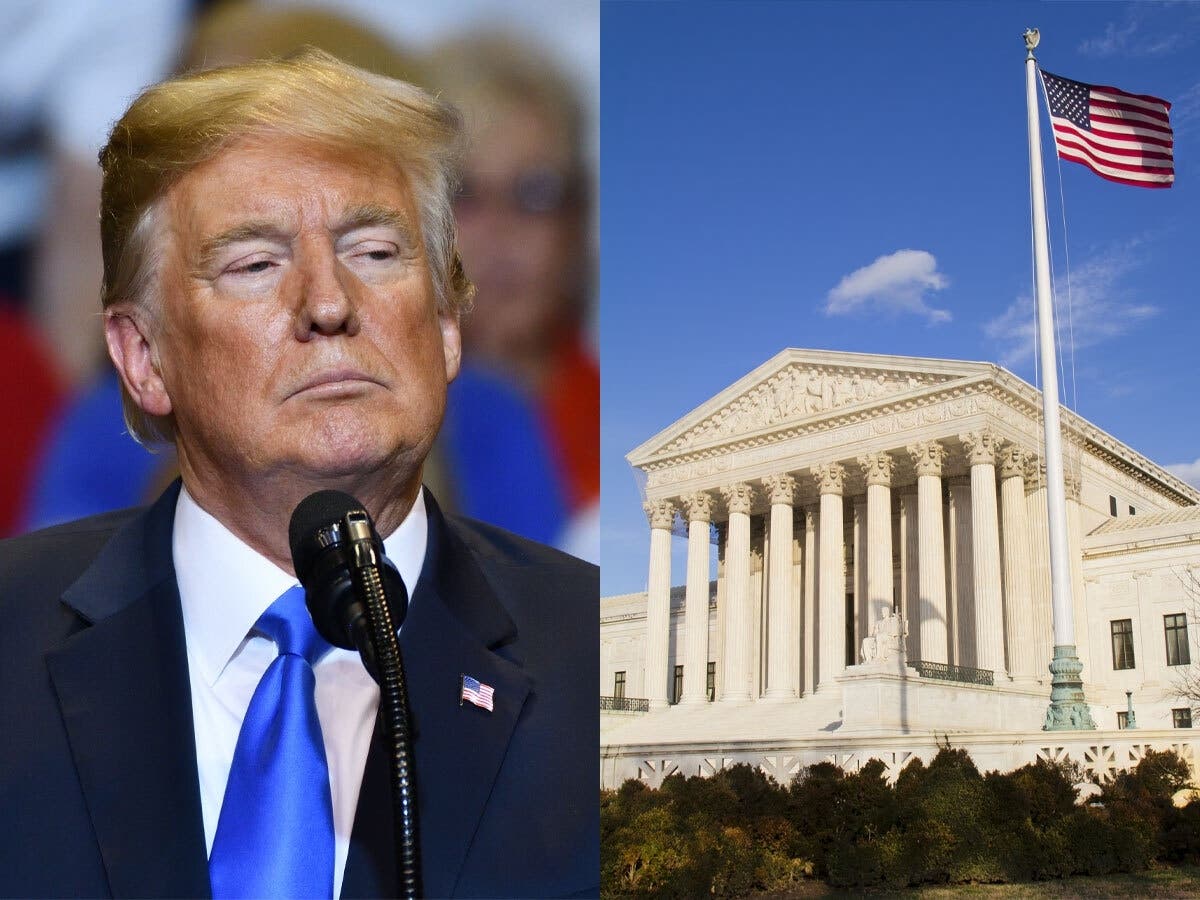
This court case surrounding former President Trump’s immunity claim carries significant weight, potentially reshaping the landscape of presidential accountability and the scope of executive power. The implications extend beyond the immediate legal outcome, impacting future cases and potentially triggering political repercussions. Understanding these potential ramifications is crucial for analyzing the broader context of the legal battle.The court’s decision will have profound consequences for the interpretation of presidential immunity and its application to future administrations.
The outcome will likely establish precedents for handling similar claims in the future, influencing how presidents and other high-ranking officials are held accountable for their actions while in office and after leaving office.
Potential Legal Outcomes
The court’s ruling could establish a precedent that significantly alters the interpretation of presidential immunity. A ruling in favor of immunity could limit the ability to prosecute former presidents for actions taken during their time in office, potentially creating a shield against accountability. Conversely, a ruling against immunity could open the door for greater scrutiny and potential prosecution of past presidents, regardless of their political standing.
The court may choose a middle ground, delineating specific circumstances under which immunity might apply, such as actions within the scope of official duties versus those of a personal nature.
The Trump immunity claim in court is grabbing headlines, but it’s worth considering broader implications. For instance, the recent FDA warning regarding Singulair, an asthma drug, highlights the importance of careful scrutiny of pharmaceutical products. fda singulair asthma drug warning raises questions about potential consequences and public health, mirroring the complexities surrounding the Trump immunity claim.
Ultimately, the court case’s outcome will likely depend on legal arguments and precedents, not unlike the careful consideration of medical warnings and side effects.
Impact on Future Presidential Immunity Cases
The court’s decision will undoubtedly shape future legal challenges concerning presidential immunity. A ruling in favor of immunity could embolden future presidents to potentially engage in actions that they believe are protected under this legal principle, potentially increasing the risk of similar legal disputes in the future. Conversely, a ruling against immunity could lead to increased scrutiny of presidential conduct, even after leaving office, discouraging potentially problematic actions.
The ruling may establish guidelines regarding the types of actions that might be considered beyond the scope of official presidential duties, affecting the scope of future immunity claims.
Political Consequences of the Ruling
The ruling’s political implications could be substantial, potentially escalating existing political tensions and influencing public opinion. A ruling granting immunity might be seen as shielding powerful figures from accountability, potentially fostering mistrust in the justice system. A ruling against immunity could be interpreted as a step towards greater transparency and accountability, impacting public perception of the executive branch and its relationship with the judiciary.
The political fallout will likely depend on the specific details of the ruling and the broader political climate.
Potential Scenarios for the Court’s Ruling
The court’s decision could fall into several categories, each with significant ramifications.
| Scenario | Key Points | Potential Impacts |
|---|---|---|
| Scenario 1: Broad Immunity Granted | The court rules in favor of broad presidential immunity, arguing that virtually all actions taken while in office are protected. | This could significantly limit the ability to hold former presidents accountable, potentially deterring future scrutiny of presidential conduct. Public perception of the justice system may be negatively impacted. |
| Scenario 2: Narrow Immunity Granted | The court grants immunity for actions deemed directly related to official duties, but not for personal misconduct. | This approach would strike a balance, allowing for accountability in certain cases while still safeguarding the prerogatives of the office. The political implications would likely be more nuanced. |
| Scenario 3: No Immunity Granted | The court rules against presidential immunity in this case, opening the door for potential prosecutions. | This would establish a precedent for holding former presidents accountable for actions taken while in office. The political implications would likely be significant, with potential impacts on the future conduct of presidents. |
Procedural Aspects of the Case: Trump Immunity Claim In Court
The legal battle surrounding Trump’s immunity claim involves a complex web of procedural steps, legal standards, and the interplay between different actors within the judicial system. Understanding these intricacies is crucial to grasping the potential trajectory of the case. This section delves into the procedural aspects, explaining the key stages, relevant rules, and the roles of the judge and the parties involved.The procedural framework dictates the manner in which the court will evaluate the validity of Trump’s immunity claim.
Trump’s immunity claim in court is getting a lot of attention, but the recent Haley memo in New Hampshire, specifically the haley memo new hampshire , is also sparking debate. While the memo’s contents are significant, it ultimately adds another layer of complexity to the ongoing legal battles surrounding Trump’s immunity claims. This further complicates the already intricate legal landscape surrounding the former president’s potential legal challenges.
The specific procedures followed will shape the outcome, impacting the timeline and the nature of the evidence presented.
Filing of the Complaint, Trump immunity claim in court
The process begins with the formal filing of a complaint by the party seeking to compel Trump’s testimony or production of documents. This complaint Artikels the specific legal grounds for the request, details the alleged violations, and articulates the relief sought. The complaint will clearly state the jurisdiction of the court and the legal basis for the action.
Discovery
Following the filing of the complaint, the discovery phase ensues. This crucial stage allows both sides to gather evidence, examine relevant documents, and interview potential witnesses. Discovery tools include interrogatories, depositions, requests for production of documents, and requests for admission. These tools enable the parties to investigate the facts and build their respective cases. Through discovery, both sides will attempt to uncover evidence that supports or weakens the immunity claim.
The Trump immunity claim in court is certainly grabbing headlines, but the political landscape is shifting fast. Recent results from the New Hampshire Democratic primary, available here , suggest a fascinating dynamic. While the primary results might not directly impact the immunity case, they certainly showcase the ongoing political tensions, ultimately raising further questions about the future of the Trump immunity claim in court.
Motion Hearing
The motion hearing phase involves the presentation of arguments by both sides on legal motions, often focused on the immunity claim itself. The court will assess the merits of these motions, considering the legal precedent and the specific facts of the case. The judge will decide whether to grant or deny the motion for immunity. This stage is critical as it can potentially resolve the case without the need for a full trial.
Examples of motions that could be presented include motions to dismiss the case based on the immunity claim or motions for summary judgment.
Trial
If the immunity claim is not resolved through motions, the case proceeds to trial. During trial, both sides present their evidence and legal arguments before a judge or jury. Witness testimony, exhibits, and legal arguments are presented to support or refute the immunity claim. The judge or jury will consider all evidence and legal arguments to determine the outcome.
This phase will be particularly important in presenting evidence that supports the claim or disproves it, potentially leading to a verdict in favor of either side.
Verdict
The verdict marks the culmination of the legal proceedings. It represents the final judgment of the court on the immunity claim. The verdict will be either in favor of the party seeking to compel Trump’s testimony, or in favor of Trump’s immunity claim. The verdict will Artikel the court’s decision, potentially outlining the specific conditions under which the immunity claim may be upheld or rejected.
Flowchart of Case Proceedings
[Start] --> [Filing of Complaint] --> [Discovery] --> [Motion Hearing] --> [Trial] --> [Verdict] --> [End]
Key Players and Their Roles
This section delves into the crucial individuals and entities involved in the legal battle surrounding Trump’s immunity claim. Understanding their roles and motivations provides valuable context for navigating the complexities of the case. Each party plays a vital role in shaping the outcome, whether directly through legal arguments or indirectly through their influence on public opinion.
Identifying Key Players
The legal case surrounding former President Trump’s immunity claim involves a diverse array of stakeholders, each with distinct roles and motivations. These include the government, the defendant, and the various parties involved in the underlying investigation. These parties are intricately connected, with their actions and interests impacting the case’s trajectory.
Roles and Responsibilities of Each Party
To grasp the nuances of this legal dispute, it’s essential to understand the specific roles and responsibilities of each party. This analysis considers the government’s pursuit of legal action, the defendant’s claim of immunity, and the supporting arguments and counterarguments of each party. Examining these aspects provides a comprehensive view of the case’s dynamic.
| Player | Role | Description |
|---|---|---|
| Former President Donald Trump | Defendant | The individual asserting a claim of immunity from legal proceedings. Motivations likely include avoiding potential criminal or civil penalties. |
| The Prosecuting/Investigating Authorities | Plaintiff | The government entities pursuing legal action against the former president. Motivations often stem from investigations into alleged wrongdoing. These could include the Department of Justice, a specific US Attorney’s Office, or a congressional committee. |
| The Courts (Judges and Jurors) | Arbitrators/Decision Makers | The judicial system responsible for interpreting the law and rendering judgments. Their roles are crucial in determining the validity of immunity claims and applying legal precedents. Judges are responsible for guiding the trial process and ensuring due process, while juries, when applicable, decide on questions of fact. |
| Legal Counsel (for both sides) | Advocates | Attorneys representing both the former president and the government. Their strategies, arguments, and legal interpretations significantly influence the outcome. Motivations for each legal team center around representing their clients’ interests effectively. |
| Witnesses | Testifying Parties | Individuals with knowledge pertinent to the case, who might be called upon to testify. Their testimony is crucial for the court to evaluate evidence. |
Conclusive Thoughts
In conclusion, the trump immunity claim in court presents a complex legal and political challenge. The court’s decision will undoubtedly have far-reaching implications for future presidential cases, potentially setting a new precedent. The outcome will shape the balance between presidential power and accountability in the US legal system, prompting a crucial discussion on the limits of executive privilege.
User Queries
What are the potential political consequences of the court’s ruling on the Trump immunity claim?
The ruling could significantly impact the political climate, potentially influencing future elections and shaping public perception of the presidency. It could also affect the way presidents interact with the legal system.
How does Trump’s immunity claim compare to those of previous presidents?
A detailed analysis of previous cases will be presented, highlighting similarities and differences in the legal arguments and factual basis for each claim.
What are the key arguments opposing Trump’s immunity claim?
A table will Artikel the key arguments against Trump’s immunity claim, including supporting evidence and the legal basis for opposing the claim. This section will include detailed analysis of the counterarguments.
What are the procedural steps in the court case?
A flowchart will be provided to visualize the procedural steps, from the filing of the complaint to the verdict, including the roles of the judge and parties involved.

